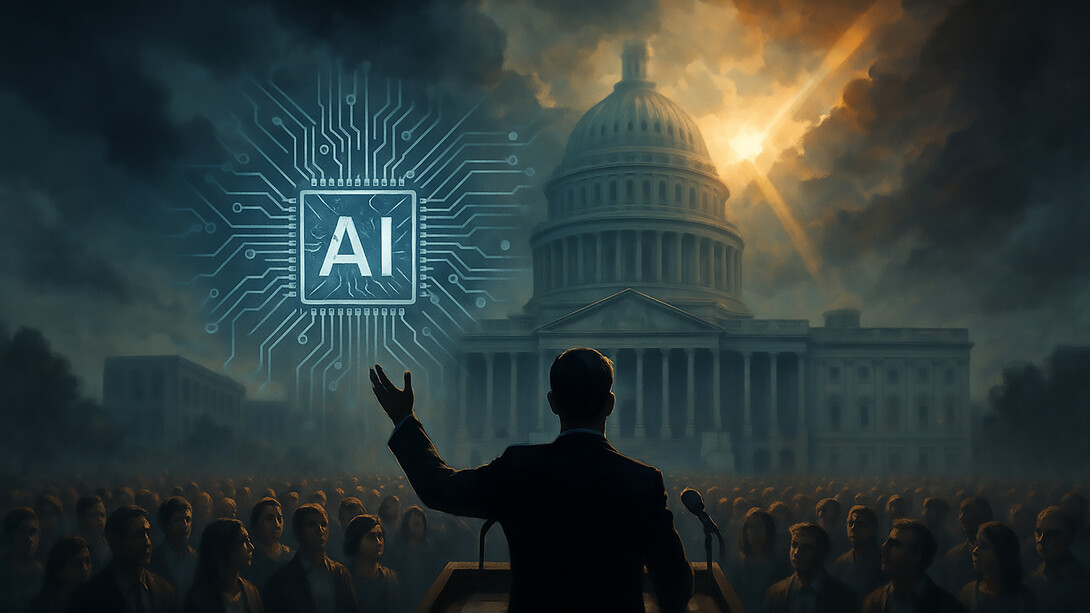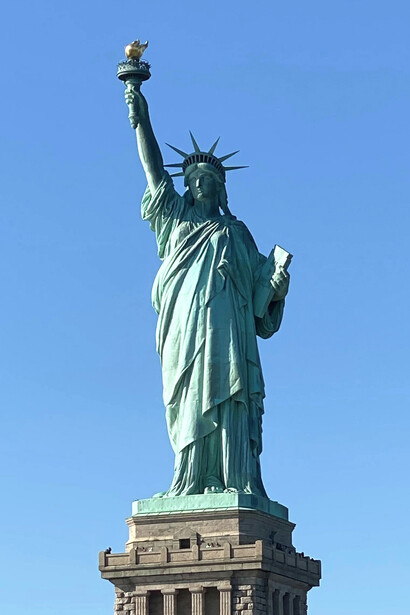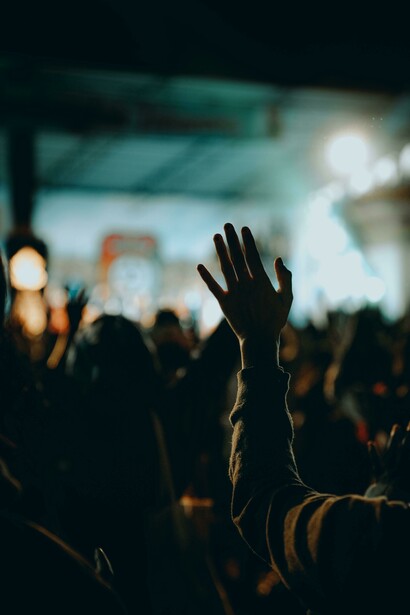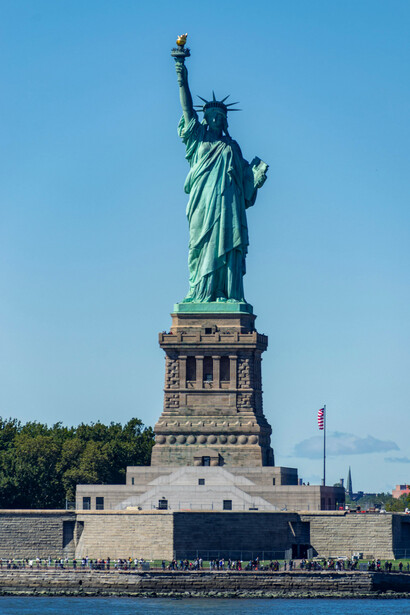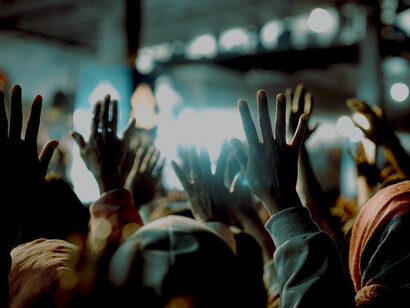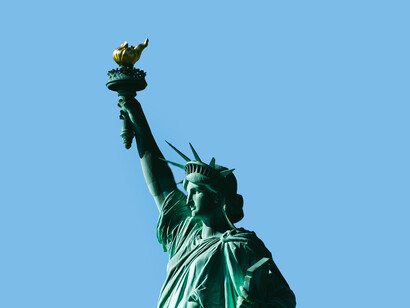This is the second of three parts of the article featuring an interview with Roberto Siconolfi, sociologist, essayist, director of the YouTube channel "La Nuova Occidentale," social and political analyst, and scholar of media, technological philosophy, and artificial intelligence. The aim is to see if, behind what appears to be lucid madness, lies a well-structured plan.
D’Angelo. Even assuming Trump succeeds in this revolution of his, because that's what it is, it would appear to be the first revolution in the United States led by the Head of State.
Siconolfi. A revolution from above, as Lucio Caracciolo also says.
Exactly. How do you think he intends to change this system? Of course, by streamlining it, so as Elon Musk said, there will be deaths and injuries, meaning many will be left without jobs, and that's what's happening. In some ways, it seems paradoxical to me that the first ones paying for this intervention, let's say with a bang by the Trump administration, are precisely those who voted for it. Many of them, in fact, are immigrants who work in government agencies.
But even if Trump succeeds in this revolution, how can it change the landscape if, as you rightly anticipated, there are interests that concern Trump himself? It's clear that it won't be a real change, a true transition, or a significant revolution.
Workers will be replaced by machines, thanks to artificial intelligence, which will make the system more efficient. But machines are taught by humans (as we've seen in the series of articles on AI found here), and I, as my readers well know, always maintain that the true revolution must take place within each of us, the only true condition for bringing about a real change of direction in the world outside us. Otherwise, there will never be a true transition.
But the revolution you speak of isn't of this world. It's certainly important, and this applies to each of us, to evolve spiritually, to make our lives increasingly an act of service to others, to the sacred.
Then, however, there's also the realm of earthly life, the realm of the immanent, which must be honoured, but honoured not by trying to, say, bring purity to a total level, but by keeping in mind that the earth is an inevitably imperfect, very imperfect, field, as we are seeing and increasingly seeing. So being able to navigate such a scenario, at this historical moment, is already, in my view, a giant step forward.
But all political projects are attempts that may or may not work, because it's clear that there's also a reality we're dealing with. So, out of ten acts, maybe four or five pass.
From my perspective, there are already signs of a shift in direction from previous administrations, such as the measures against USAID, the agency that subsequently led all the wars, color revolutions, and humanitarian wars; the attempt to reconnect with Russia and not give in too much to Netanyahu's actions (see the 12-Day War); the Kennedy affair, and the work he's doing to restore a culture of health to Americans. Of course, he's not immediately halting the production of mRNA vaccines, but that wasn't his intent either; instead, it was to provide information and freedom of choice. And it seems to me he's pursuing both, because now Americans are free to choose, unconstrained, but at the same time, they are informed of the pros and cons. Obsessive advertising campaigns will no longer be used, which then increasingly lead to the use of drugs that, at the very least, weaken your health.
Or the fact that the US did not give in to the temptation to go to war with Russia is a further change of direction.
The fact that on “X”, which is a social network used by millions and millions of users, you can breathe more freedom. Or that Mark Zuckerberg was essentially induced, for tactical reasons, to admit that he had said and had others say a lot of nonsense about Covid, that is, all these things are not at all obvious and are a clear example of the desire for change.
Trump is moving forward, even if he won't establish a perfect world, but what is the perfect world we want to live in? Personally, I agree with maintaining a certain level of domestic production at the expense of offshore production, as well as a certain level of real, concrete, and solid economy.
I'm not sure this electoral base, to which you refer, is dissatisfied; perhaps more so recently, due to the friction over the Israel and Epstein issues. There, indeed, is a clash between Trump's populist base and the neoconservative powers that persist within the administration. Ultimately, I think the rebirth of fundamental freedoms, such as the freedom to speak, to do business, and to be able to stop crazy, ideological projects—think of the green transition—are excellent initiatives. It's not a paradise, but I don't believe this state will ever exist on earth.
Certainly, there won't be a heavenly state, at least not in the short term; we must find a balance between everyday life, the objective external world, and what a certain type of internal evolution might entail. However, I see no contradiction between the two; after all, how can we justify a person who "practices what they preach"?
A true change of direction for a society that is clearly taking us in an unnatural, if not catastrophic, direction cannot be based solely on changes that concern merely technical and organizational aspects, because everything, even AI, passes through our consciousness.
Sri Aurobindo, to quote one of the many philosophers, thinkers, teachers, call them what you will, who have tried to give us a glimpse of the possibility of living in a different world, spoke of “integral yoga” which, in summary, states that we should have a certain type of attention and awareness in everything we do, not just when we sit in a corner of a room meditating, but in every act of our day.
But to return to more practical and immediate issues, you mentioned the issue of healthcare. I don't live in the United States, but I have friends who are American and live in the United States, and from what they tell me, and from a couple of videos I watched on YouTube before we spoke, it seems that Trump, instead, is dismantling American healthcare—that is, the little bit Obama had achieved by de-privatizing healthcare.
I don't think they touched it, it was something they were saying, but now they're not implementing it.
I wouldn't say so: some time ago, there was a congressional hearing with some Democratic senators who claimed that with a single tweet, Elon Musk had blocked the proposal to provide free medication to asthmatics. Just as Trump certainly literally dismantled the Department of Education in March.
But if the money must go to promote gender ideology in schools... I honestly have no interest in funding a public school where these things are promoted. Trump represents the America of communities, the America that is against the central government.
It is a paradox said by the president of the central apparatus.
It is, by necessity, since to become president, you must be elected. But its goal is to reduce the powers of the central state as much as possible and strengthen those of the communities.
The power of the communities or of the private sector? Because when it comes to healthcare in the US...
That of communities and that of private individuals. Private individuals are nothing more than citizen organizations that, led by a venture capitalist or an entrepreneur, create an economic network.
Which usually looks after its own interests, while the State should look after the interests of the citizen.
But that's not the case; it's not the paleo-libertarian mentality that represents much of Trumpism's philosophy. The state is something that must be reduced as much as possible, because the state is the expression of that modern, Jacobin, Enlightenment mentality that suppresses communities, suppresses the creative spirit of individuals.
I'd do it in Italy too; I'd cut it in Italy too. I'm not interested in funding eight doctoral scholarships where seven are rigged, or working in a school where I have to talk about ecofeminism, gender theory, and the like, or funding public healthcare, where I have to get a Green Pass, where they let me die in intensive care because maybe I didn't get vaccinated, or even if I did get vaccinated, they still let me die. I prefer to promote alternative private networks, and I hope more of them emerge.
To be continued…
Notes
Danilo D'Angelo, Trying to understand what is happening in the US.
